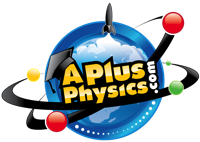Time for a little mental health rant…
We all want our children to be the best they can be, to feel good about themselves, and to reach their potential. Part of this process, however, involves learning to fail productively — understanding and experiencing what it’s like to fall short, knowing that sick feeling in your gut is uncomfortable but necessary, and disliking that feeling enough to do something about it and try again.
I sure hope I’m wrong, but I feel like many of the changes I’m seeing in the way we as a society deal with children is sending the wrong message. These changes are made with the best of intentions — we don’t want anyone to feel left out, and we don’t want children to experience the pain of failure — but we as adults who know better need to recognize that these uncomfortable experiences are important to building up confidence, self esteem, and independence. Kudos that aren’t truly earned don’t teach a child to work hard, they teach a child that showing up is enough.
I’m not saying little ones need to be beaten into submission, or that I should always crush my kid in a game of Connect Four — but I do think they need to learn that they can’t win every time, otherwise there’s no impetus to improve. They won’t always get picked first to be on a team, there will be days when they are left out of activities their friends get to experience, and there will be events when they’ll leave the field and not be the winner of the event. This is OK, it’s an opportunity learn the importance of giving your all, of preparing as fully as possible, and the value of sportsmanship, both on top and at the bottom of the podium.
I think it’s also important for our kids to understand what makes us proud and what is disappointing. Sportsmanship is important, but it’s also important to realize that decisions leading up to events contribute to the success or failure of that event. As a teacher I observe students who work their tail off and struggle for a middling grade… and I try to instill a sense of pride in that work and that grade. I also have students who slack off and are naturally talented enough to earn A’s. I try to explain to these students that they are not reaching their potential, and I don’t find that acceptable. There will be times when our kids may try and try and try, but never reach the level of success that they desire. Recently I’ve dealt with repeated instances of academic dishonesty, from students who are taking shortcuts in their classes, and aren’t recognizing the connection between their integrity, work ethic, and results.
True self esteem and confidence comes from understanding that you can go to bed every night with no regrets, having given your all, not from an external source such as a trophy or a piece of paper with a letter on it. And not meeting every goal just tells you that you’ve set aggressive goals. If you reach every one of your goals, you’re not reaching high enough.
I don’t think it’s valuable to get into specifics, as you can find “opportunity for improvement” in so many of the things we do and say with our kids, from the toddlers to the older young-at-heart — in our homes, in our schools, and in our activities. But I would ask, if some of this does resonate with you, to take a step back and look at what changes you can make, or ways you can support and reinforce those who are instilling these old-fashioned values. And don’t be afraid to speak up every now and then and question what you see occurring.
Just because someone thinks it’ll make everyone feel better, doesn’t mean it’s a good idea. And just like our mothers taught us, popular opinion doesn’t mean it’s the right opinion. Remember the old adage “if all your friends jumped off a bridge would you jump off too?” It’s time for all of us to start thinking for ourselves.

